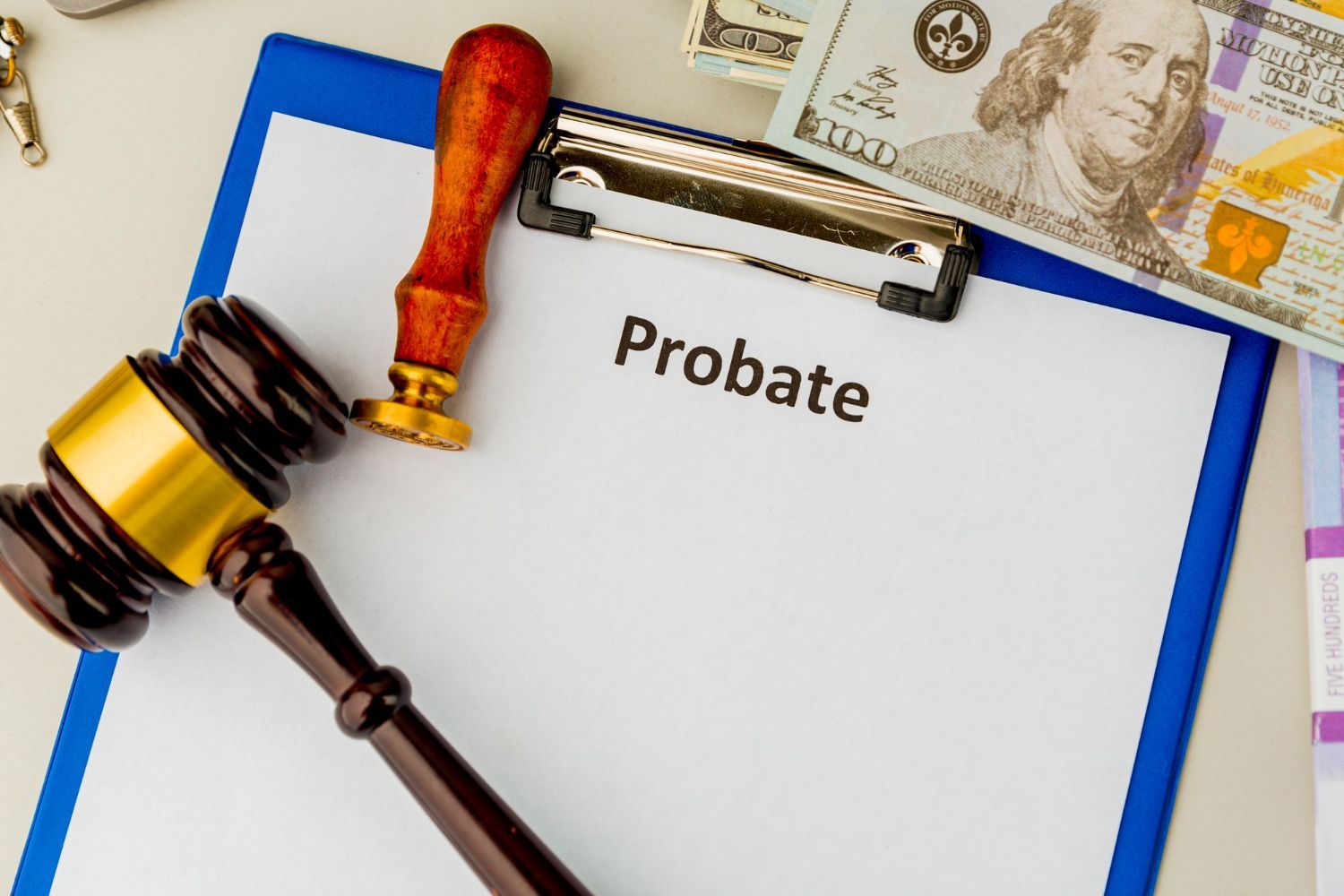What Happens to Debts During Georgia Probate?
When a loved one passes away, it often feels like everything stops. But while the emotional weight is heavy, there are real-world matters that keep moving like what happens to the person's estate and any debts they left behind. In Georgia, all of this is handled through a legal process called probate. It's a system designed to make sure that everything, from assets and property to bills and taxes, is fairly addressed.
Understanding how debts are treated during probate is one of the most overlooked parts of estate planning. Many families don’t realize that debts don’t magically disappear when someone dies. Instead, they’re handled through probate like any other part of the estate. Knowing ahead of time who is responsible, what the rules are, and how to prepare can help prevent added stress, delays, or confusion when the time comes.
Understanding Probate in Georgia
Probate is the legal process that makes sure a deceased person’s estate is settled properly. This process confirms a will if there is one, appoints someone to handle the estate usually called the executor or administrator, and oversees the payment of debts and distribution of assets to heirs.
In Georgia, the probate process typically follows these general steps:
1. The will, if one exists, is filed with the probate court.
2. The court approves an executor or administrator to manage the estate.
3. All potential heirs and interested parties are notified.
4. A list of the deceased’s property and debts is created and filed.
5. Creditors are notified and given an opportunity to request payment.
6. Debts and claims are paid out of the estate.
7. Once everything is handled, any remaining assets are distributed to the rightful heirs.
Even when someone dies without a will known as dying intestate, their estate still goes through probate. In those cases, Georgia law decides who the heirs are and how the property is divided. What often surprises families isn’t the step-by-step process itself, but how debts play into all of it. That’s where things can get tricky without proper planning.
Types of Debts Addressed in Probate
During probate, all outstanding debts and liabilities of the deceased are reviewed and managed before anything can be passed on to the heirs. This process helps protect both the creditors and the family from confusion or disputes.
Some common debts reviewed during probate include:
- Medical bills, especially those tied to hospice or hospital care
- Credit card balances and personal loans
- Car loans, mortgages, or home equity lines of credit
- Utility bills, rent, and other monthly obligations
- Federal or state taxes owed at the time of death
- Funeral expenses, depending on how they were paid
All these debts aren’t treated equally. There’s a repayment order under Georgia law, meaning certain debts will be paid first if the estate doesn’t have enough money to cover them all. For example, secured debts like a mortgage are typically paid before unsecured debts like credit cards. Taxes or court costs are usually near the top of the list too. Knowing this order matters, especially if the estate is small and there’s a risk that some creditors may not be paid in full.
Handling Debts in Probate
When a person is appointed as an executor or administrator in Georgia, managing the deceased's debts becomes one of their biggest responsibilities. This task must be done carefully and by the book. If it isn't, creditors might come forward later, or heirs could challenge how the estate was handled.
The process starts with notifying any known creditors. Georgia law also requires publishing a notice to creditors in a local paper, which gives unknown creditors a chance to come forward. Known creditors don’t have unlimited time to submit their claims. Once claims are received, the executor reviews them, determines if they’re valid, and starts arranging for payment. These payments come out of the probate estate, not from the executor’s own funds.
Some debts, like joint loans or loans with co-signers, don’t stay within the probate estate. Instead, the surviving borrower may take over responsibility for paying them. On the other hand, debts in the name of the deceased alone typically go through probate, where they are either paid off or listed as unpayable if there's not enough money.
Organizing, sorting, and settling debts takes time and attention. Executors must keep good records and stay in touch with the probate court. Mistakes made during this process, such as paying off lower-priority debts before higher ones, can lead to legal or financial problems. That’s why many people handling an estate look for guided legal support early on.
What Happens if the Estate Can’t Cover All Debts
Sometimes the value of an estate simply isn’t enough to handle every outstanding bill. This situation is called an insolvent estate. It doesn’t happen often, but when it does, Georgia law steps in with a repayment order that helps direct what limited funds are available.
Here’s how the general hierarchy of debt repayment works in Georgia:
1. Estate administration costs like court fees and attorney fees
2. Funeral expenses, up to a certain limit
3. Taxes owed to the state or federal government
4. Expenses of the person’s last illness
5. Secured debts, like mortgages
6. Unsecured debts, including credit cards or personal loans
Unpaid, lower-priority debts often don’t get paid in full, or at all. That can be frustrating for creditors, but it protects family members from being personally responsible for those debts. Spouses and adult children are not on the hook for debts unless they co-signed or legally accepted the responsibility before death.
If a relative had more debts than assets, families may start to worry about whether inheritances will be blocked or reduced. That’s where careful planning can really make a difference, long before probate even begins.
Securing a Financial Legacy
Planning ahead can reduce or even prevent probate stress, especially when it comes to debts. With the right steps, you can help make things easier for your family and protect assets for future generations.
A few smart estate planning ideas include:
- Creating a revocable living trust to hold property and avoid probate altogether
- Naming payable-on-death beneficiaries for bank accounts and investments
- Using life insurance policies to help settle debts or support loved ones
- Keeping a clear list of all debts and assets for your executor
- Reviewing estate planning documents every few years or after major life changes
Georgia families face all kinds of situations. Some include blended households, long-term elder care needs, or adult children with special needs. In these cases, planning becomes even more important. It’s not just about avoiding problems today, it’s about being thoughtful with what you leave behind.
A well-crafted estate plan can answer questions before they arise, especially when it comes to debts. Whether your concern is protecting real estate, funding a child’s future, or making sure your final medical bills are covered, the decisions you make now will shape what your family has to face later.
Protecting Your Estate and Loved Ones with McGinn Law
Estate debts are one of those things that people often forget to plan for. When left unaddressed, they can slow down probate or add tension between surviving relatives. Understanding how these debts are paid and taking steps to clean things up ahead of time can save your loved ones a lot of stress.
Georgia’s probate laws have guidelines that help, but every family’s needs are different. Getting organized early, asking questions, and making sure your estate documents are up to date are smart moves for anyone looking to protect what matters most. Even simple changes today can mean a smoother process for the people you care about tomorrow.
If you're dealing with
probate administration in Georgia, having experienced legal support can ease the burden. McGinn Law can help you navigate each step with clarity, from understanding your role to ensuring the estate is settled properly. Let us help make a difficult time more manageable for you and your family.





